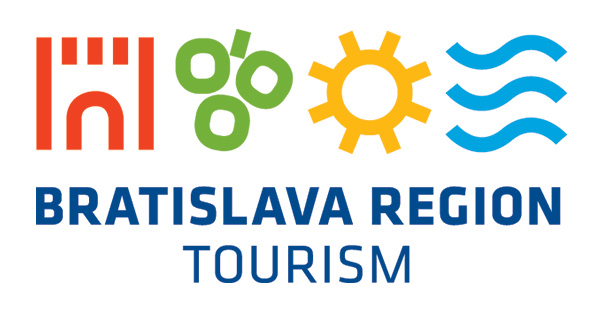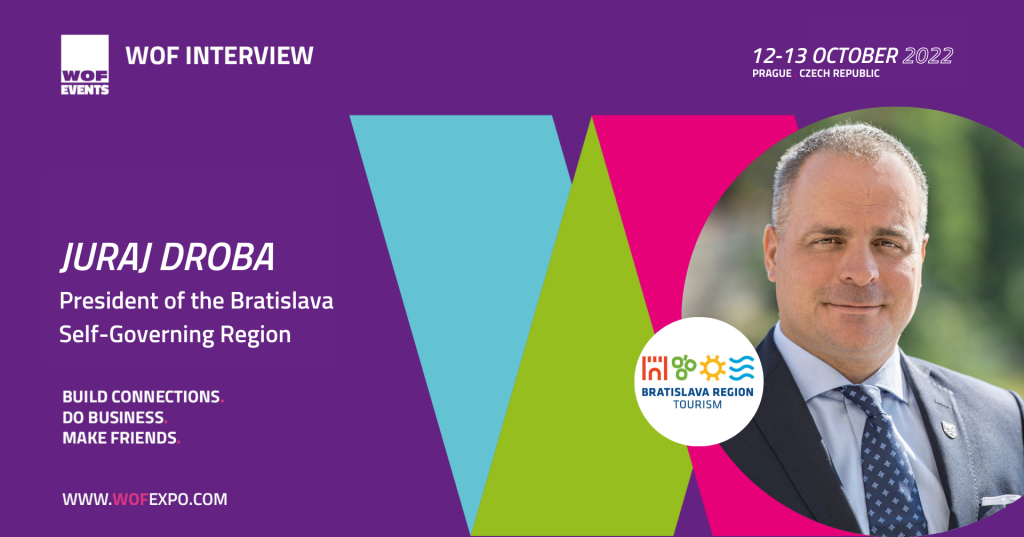Interview with Juraj Droba
Mr. Juraj Droba is President of the Bratislava Self-Governing Region and Vice-President of the European Committee of the Regions, Vice-Coordinator of the Commission for Territorial Cohesion Politics and the EU Budget (COTER), and Member of the Commission for Social Politics, Education, Employment, Research, and Culture. He graduated in English language and literature from Comenius University. He earned an MBA from the University of Pittsburgh and later studied political science at George Washington University in the United States. After graduating, he worked in the private sector. He held the position of Director of the External Relations Division at T-Mobile Slovensko, a.s. He actively entered politics in 2010 as a member of the National Council of the Slovak Republic. He has been involved in communal politics since 2017. |
1. Mr Droba, please tell us what do you consider the most important aspects of being the President of the Bratislava Region? The meaning of the counties was definitely revealed in the last year during the pandemic. I consider the proximity to the citizens and the possibility to respond quickly to their needs and social development to be one of the most important aspects. At the same time, self-governing regions have an irreplaceable role in solving problems that extend beyond the territory of one or more municipalities. Within the Office, I consider it important to plan and create strategic and conceptual documents. In this way, we can design and implement measures and methods for the implementation of sectoral policies and improve public services to the inhabitants of the region. 2. What is your personal vision for the Bratislava Region in the next couple of years? My vision is to create an effectively functioning office that will provide targeted, accessible and efficient services to the citizens of the region within the region. At the same time, we strive to achieve sustainable development in accordance with the SMART principles. It is thus a new approach to the development of our region and its planning and management, together with the use of technical and technological innovations, including information and communication technologies. 3. By 2035, Europe should meet its targets for the circular economy and recycle 65 percent of waste. When it comes to the waste management options for cities, what are the futurological visions of waste management development and a sustainable future in the Bratislava Region? One of the central pillars of the circular economy is the return of the material to the economy and the prevention of waste being landfilled or incinerated, which best captures the value of materials and reduces losses. At present, the recycling and re-use of a product is the most efficient method of recovering raw materials, while preventing landfilling or incineration. Landfilling is one of the biggest problems in the region’s waste management. Therefore, the key environmental priorities for the coming period include the construction of semi-underground containers, modern and ecological disposal of municipal solid waste, waste recovery with a focus on recycling, prevention of biodegradable municipal waste, diversion from landfilling, and remediation and reclamation of landfills after their completion. operation. 4. Many smart cities are already being created. What are the challenges that you see in the process of the Bratislava Region becoming a Smart Region? How can the Bratislava Region overcome these challenges? We are currently in the phase of preparing the SMART strategy of the region, and when implementing SMART elements, we are not interested in providing services that are unnecessarily complicated and unusable for people. On the contrary, it is about making basic services better for citizens, using modern technology. Our goal is to connect know-how from abroad, the private sector, scientific research institutions, and the third sector with the local government, from which specific project intentions arise. Their subsequent implementation can help us solve the most pressing problems in the region. In the new programming period, Bratislava Region plans to significantly strengthen the integrated approach to the implementation of projects in the region. Priority will be given to projects that can best contribute to the sustainable development of the region. Again, this is a new, innovative and inclusive approach to solving structural problems. 5. Last, but not least what is your opinion about positioning WOF EXPO in the Central and Eastern Europe region? The Bratislava Region, Slovakia, as well as Central and Eastern Europe, are regions with significant economic and innovation potential that can respond dynamically to today’s challenges. The organization of such an event is undoubtedly beneficial for the region and I believe that it will support the establishment and development of B2B partnerships in the field of transport services, logistics, e-commerce, and e-business. |
 |
The Bratislava Self-Governing Region is a metropolitan region located in the heart of Europe. In terms of the level of economic development and quality of life of the population, it is one of the most developed areas in Slovakia. A key element of the region is its inhabitants, who with their dynamism and creativity directly contribute to competitiveness and economic growth. The strength of the region is the innovation and research potential consisting of the presence of universities, scientific and research institutions, as well as technology centers and new-generation industrial parks. The location of the region on the border of three states allows Bratislava County to implement international cooperation and actively participate in the future shape of European regional politics based on the principles of ecology, efficiency, addressability, and sustainability.
www.bratislavaregion.eu |

